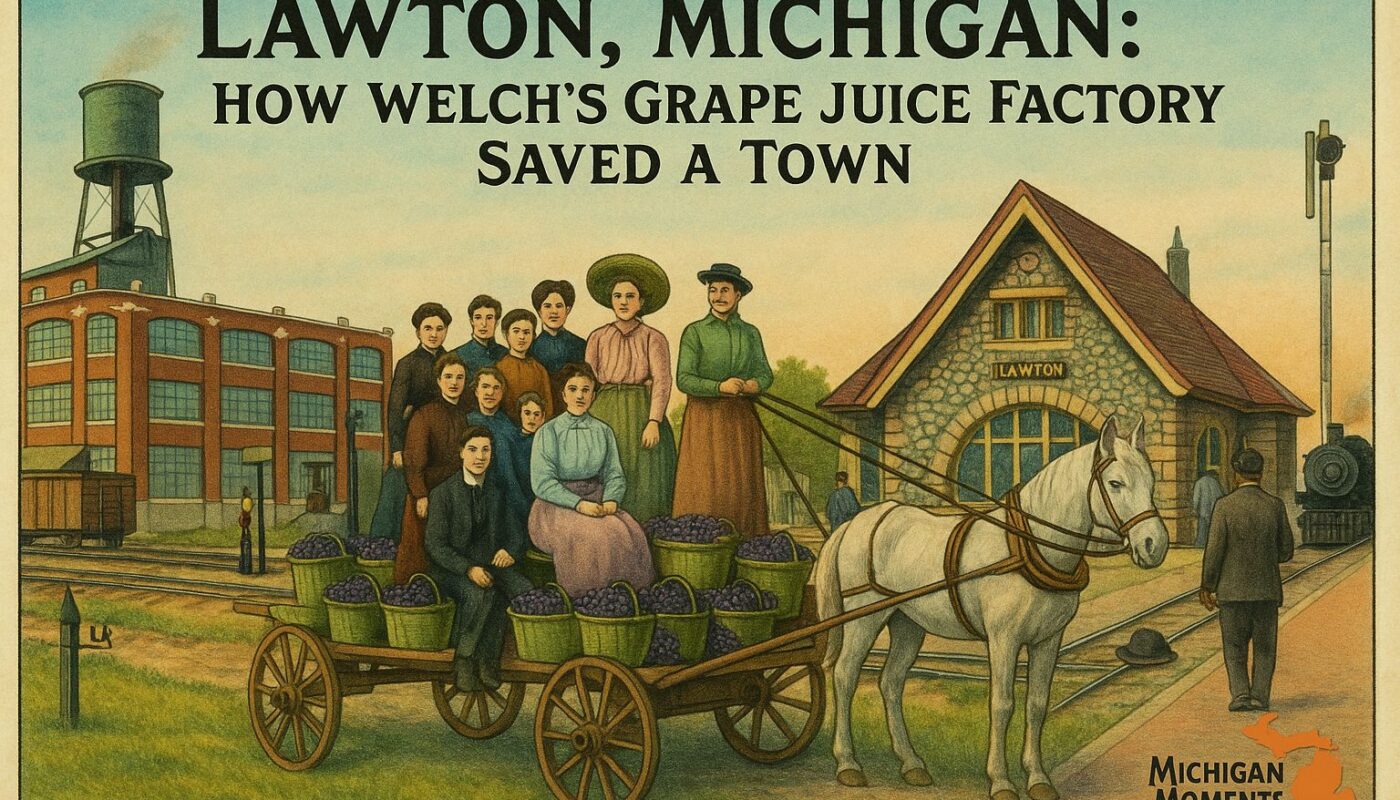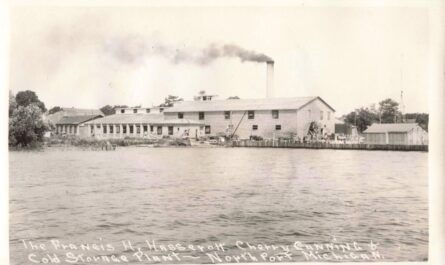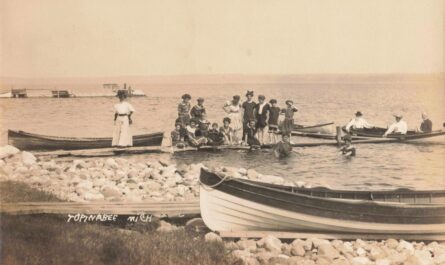Lawton Michigan history tells how Welch’s grape juice factory saved the town during Prohibition. For 100 years, vineyards and cooperative farming have fueled its economy. The Welch’s factory still processes Concord grapes, keeping Lawton’s sweet legacy alive.
Video – Lawton Michigan History – Grape Juice Powered This Town for 100 Years
A Small Railroad Stop Grows

Lawton, Michigan started as a small station on the Michigan Central Railroad. This rail connection allowed local farmers to ship produce to bigger markets. The town’s Main Street filled quickly with shops, banks, and hotels like the Giddings Hotel and Smith’s Hotel. These businesses catered to farmers, travelers, and rail workers.
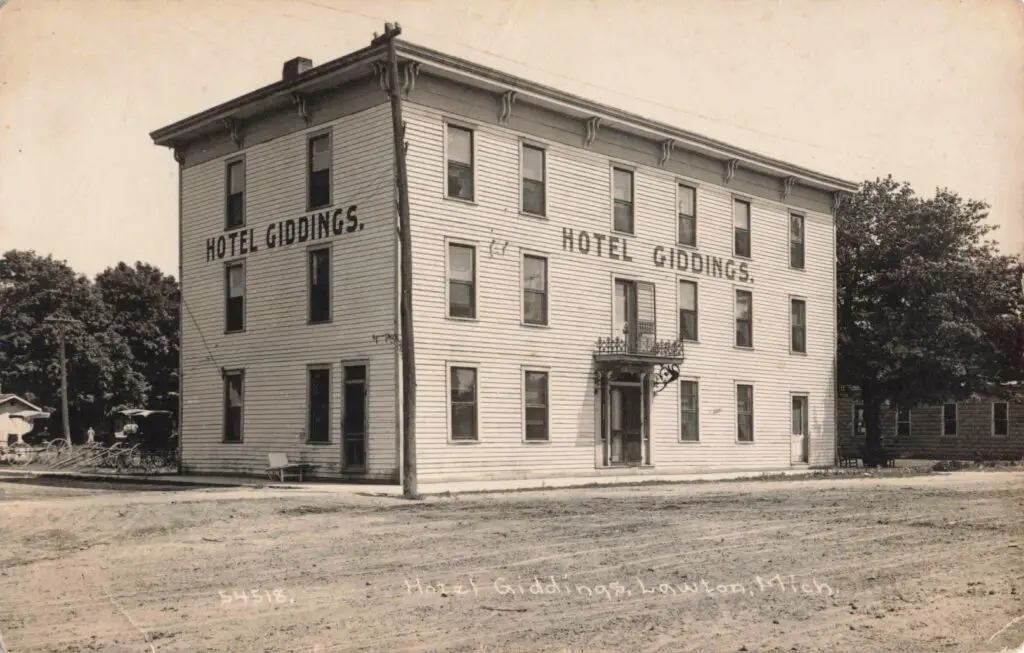
The stone Michigan Central Depot became a symbol of Lawton’s early growth. Trains carried both people and freight, linking this small town to the rest of Michigan and beyond.
Grapes Take Root in Lawton
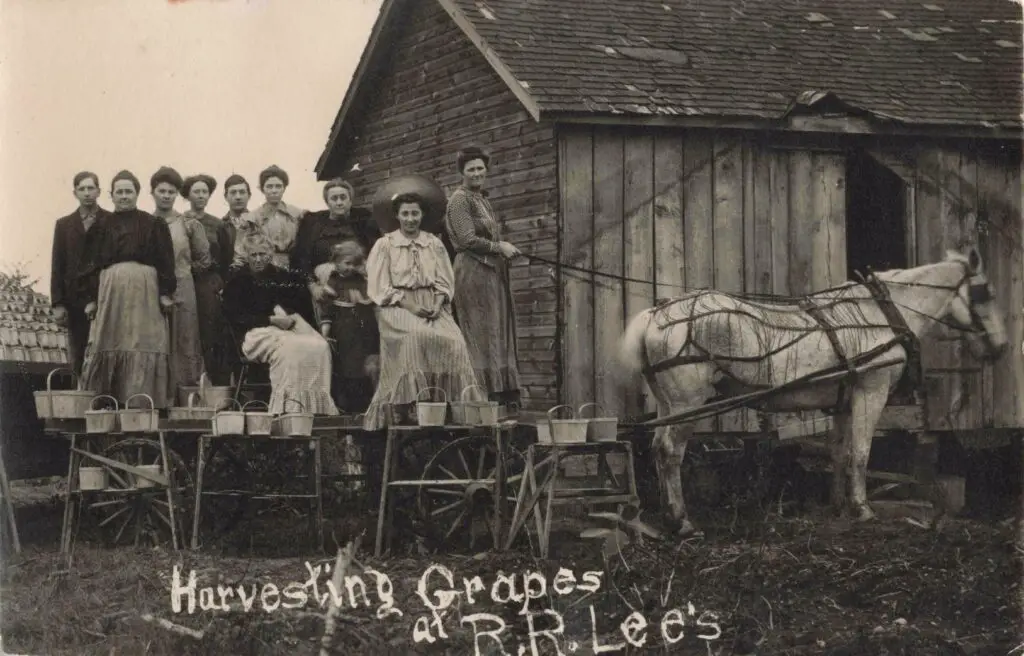
In the late 1800s, farmers discovered that the region’s climate and soil were ideal for growing Concord grapes. Vineyards expanded rapidly across the countryside. Entire families worked the harvest, as shown in early photographs from farms like the R.R. Lee vineyard. Buckets of grapes filled wagon after wagon.
Grape harvesting wasn’t just seasonal work; it became part of daily life. Children, parents, and grandparents worked together in the fields during harvest season. The local basket factory provided wooden crates used to collect and transport the grapes.
Prohibition Brings New Opportunity
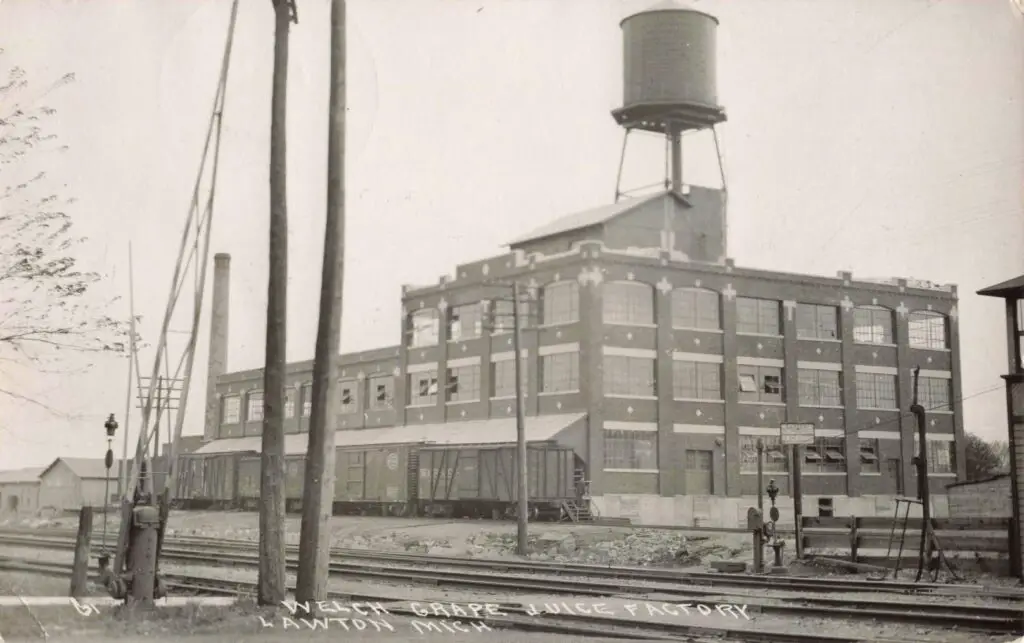
When Prohibition arrived in 1919, many towns dependent on alcohol production faced collapse. But Lawton’s farmers found a way forward. That same year, Welch’s opened one of its largest grape juice processing plants in Lawton.
This massive brick factory, complete with a water tower and rail access, became a critical piece of the town’s economy. Farmers sold their grapes directly to Welch’s, joining the cooperative and securing stable prices for their crops.
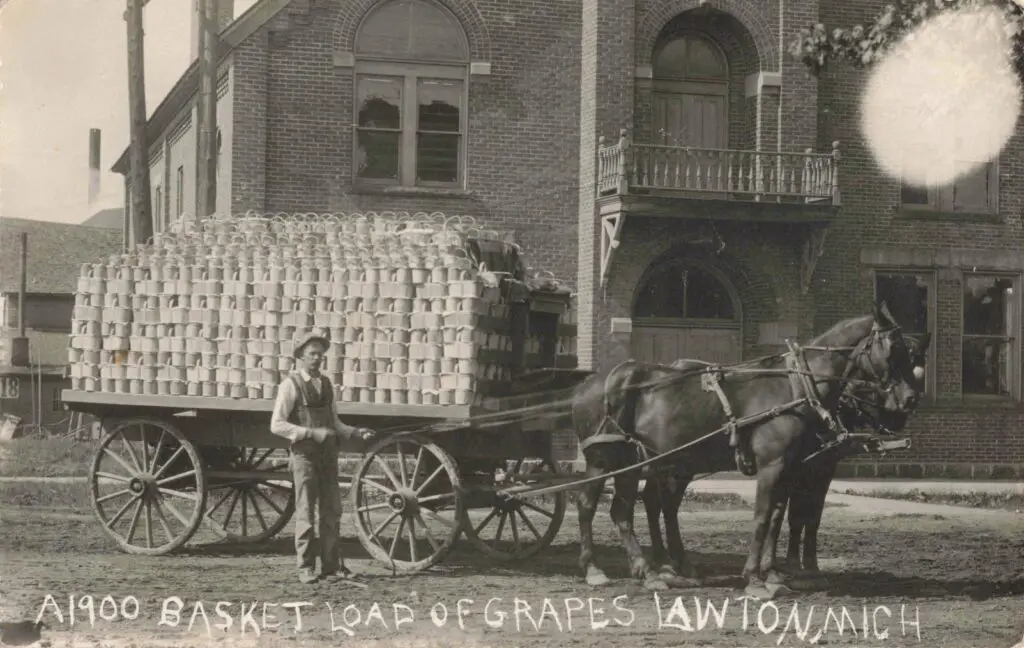
Crates of grapes arrived daily. The factory processed the harvest into juice that was bottled and shipped across the country. Lawton’s Concord grapes were now part of American breakfasts and church communion tables from coast to coast.
Cooperative Farming Brings Stability
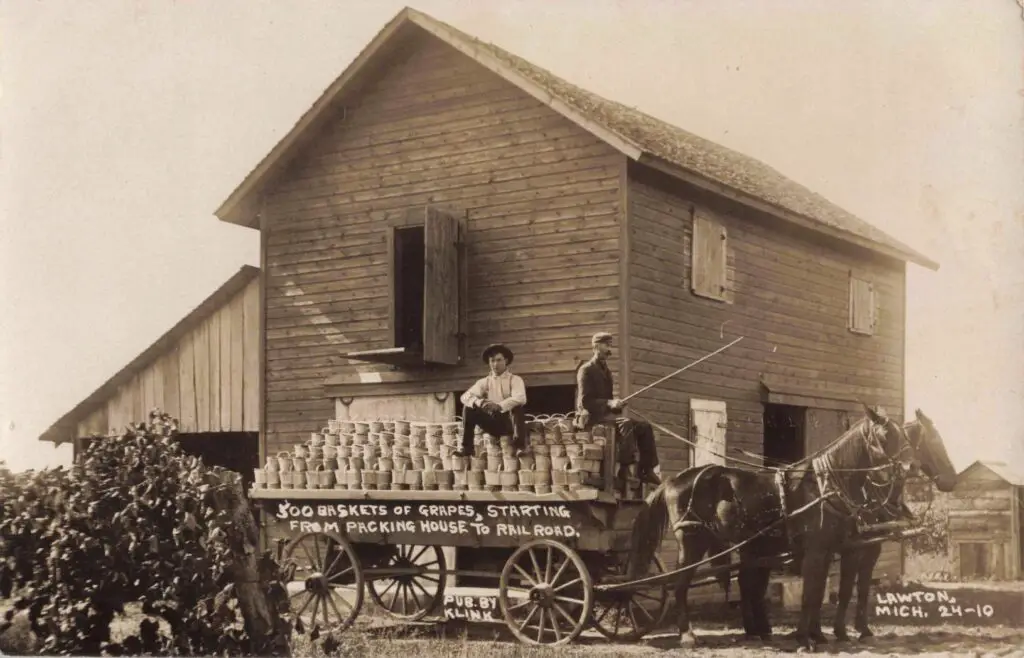
Welch’s operated as a grower-owned cooperative. This allowed local farmers to benefit directly from the company’s success. Even during the Great Depression, grape growers received steady pay for their harvests.
Seasonal jobs at the plant provided work for many town residents. Families worked side-by-side in both the vineyards and the factory. This steady employment helped sustain the town through multiple economic downturns.
Industry Expands Beyond Grapes
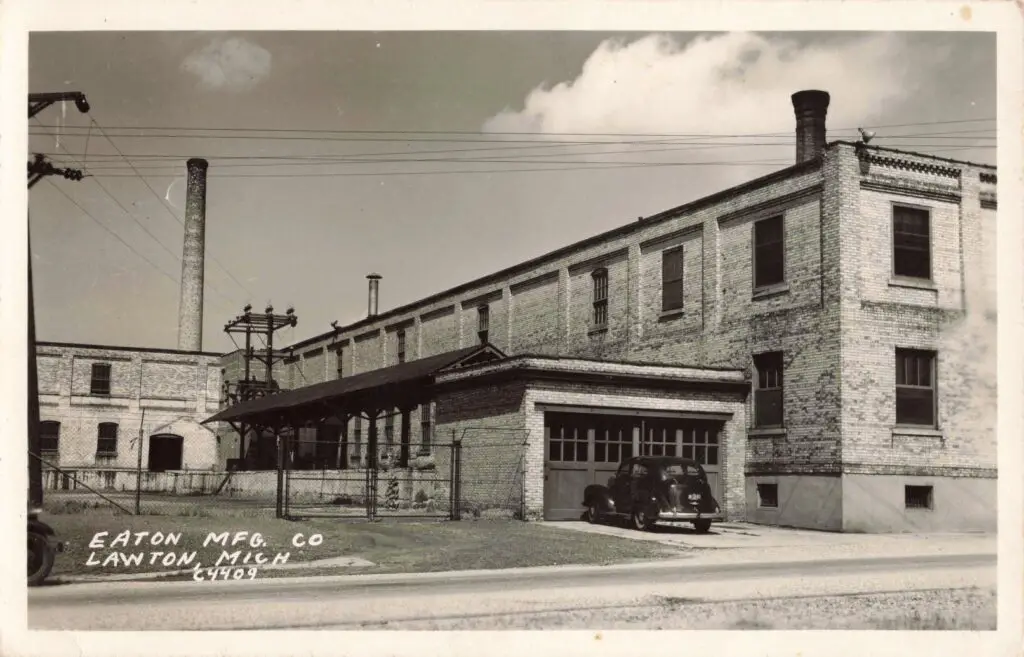
Lawton’s industrial growth wasn’t limited to Welch’s. The town became home to the Eaton Manufacturing Company, which produced precision parts. The local basket factory continued to supply the crates used during harvest season. Each of these industries added new jobs, keeping Lawton’s economy diverse.
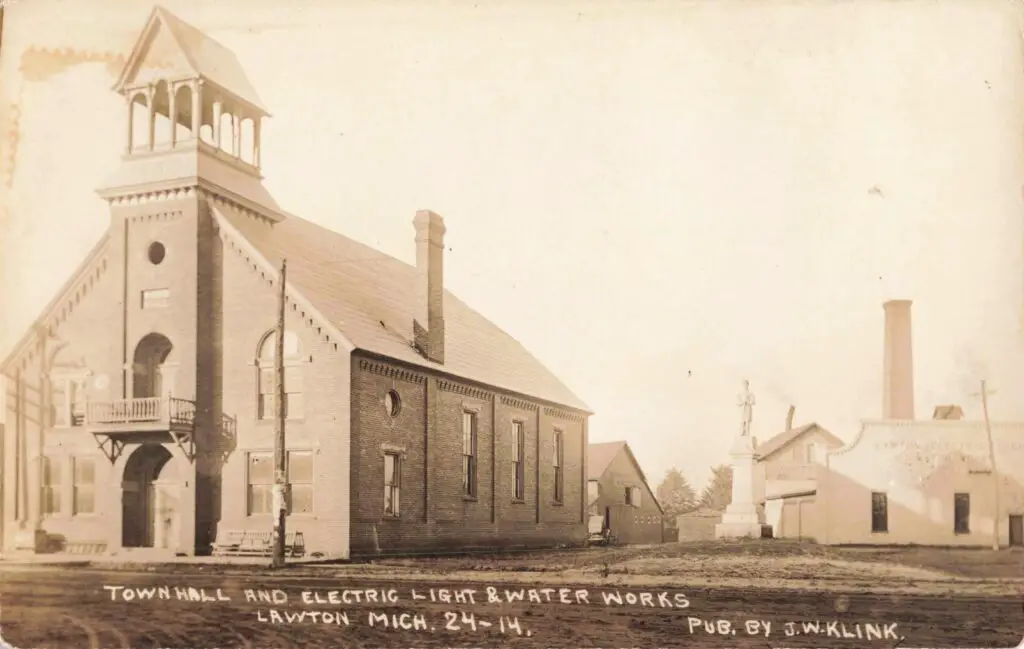
The town also invested in its infrastructure. Lawton’s Town Hall, electric light works, and water plant supported the growing population. The G.A.R. Memorial Hall honored the town’s Civil War veterans as a quiet monument to sacrifice and service.
Welch’s Remains a Pillar of Lawton
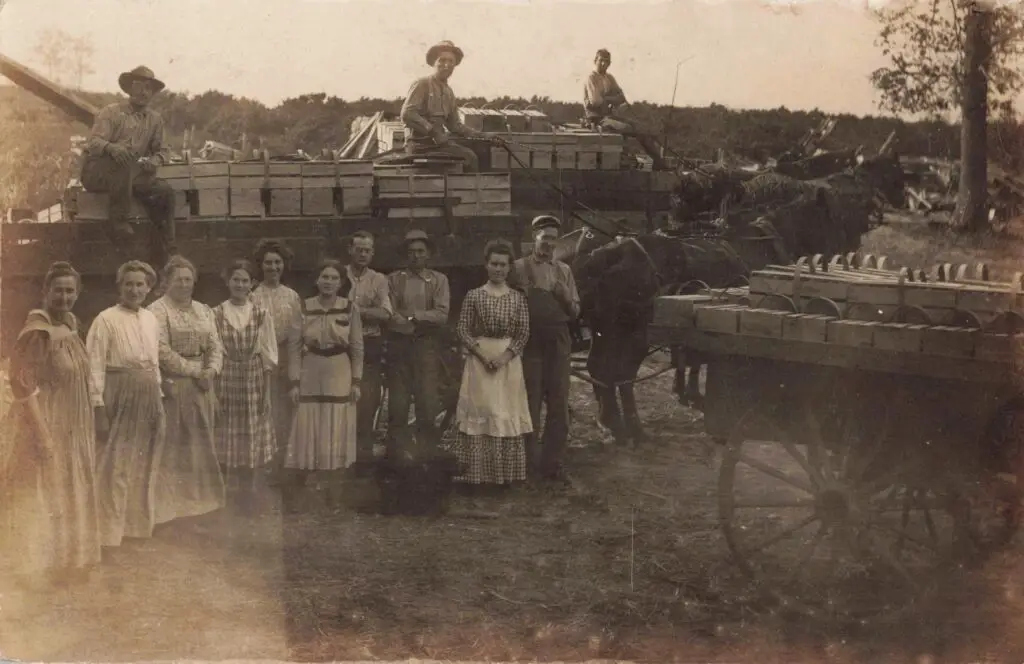
More than 100 years later, Welch’s remains a major employer in Lawton. The plant still processes local grapes into juice, jelly, and other products. Generations of families have continued farming the same vineyards their ancestors planted.
Lawton’s story is not one of survival by luck but by smart adaptation. The grape industry continues to define its identity. The rows of Concord vines still stretch across the countryside, just as they did a century ago.
Lawton Michigan History – A Town Built on Sweet Harvests
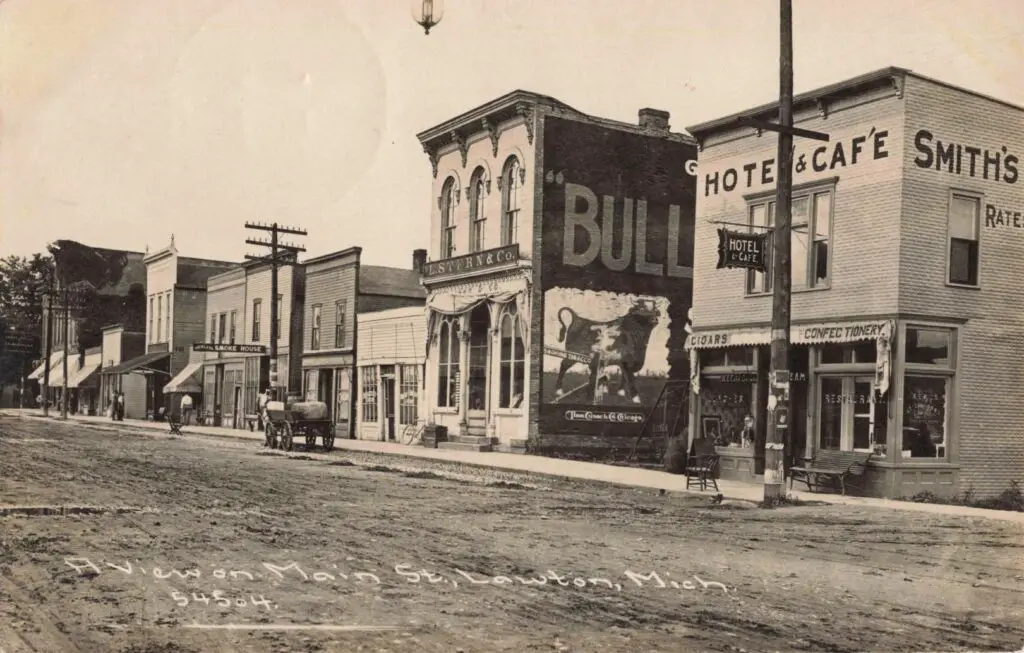
Lawton Michigan history is rich with lessons on how small communities can thrive by seizing unexpected opportunities. When Prohibition threatened many towns, Lawton embraced grape juice production and cooperative farming.
Today, visitors can still see reminders of this history in the stone depot, historic hotels, factory buildings, and endless vineyards. Lawton remains a small town with a deep connection to its agricultural roots — a place where grapes continue to tell the town’s story.
